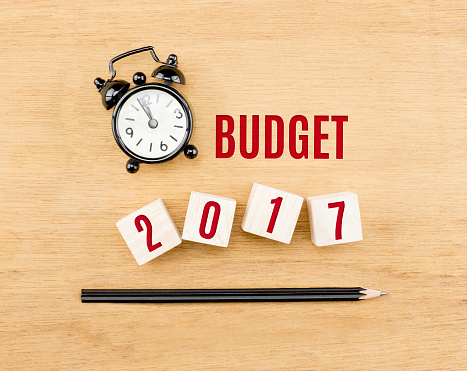
©Weedezign/ISTOCK/THINKSTOCK
It’s the time of year for reflection and, as finance professionals, it’s a good time to take a step back and review your budgeting process to identify where there may be an opportunity to take a more detailed look to support strategic planning efforts. For example, perhaps there is an opportunity to budget down to the individual employee level, individual product level or by state. In order to make a good decision for your company, however, you must consider if you have the staff and tools to support the needs of your business. How granular you make your business budget has to consider those factors along with several other critical points.
Making decisions
There are four primary considerations to think about when you’re making your choice each year on how detailed you should get with your budget.
- What’s important?
Creating a budget isn’t just an exercise for number-crunchers. It needs to matter. Budgets help companies align their tactical plans with their strategic ones. They need to tie department level activities to the big picture goals of the organization. Setting your intentions and expectations in advance is as critical for businesses as it is for individuals.
That being said, deciding on how detailed to make a budget comes down to planning and decision making. No one has time for wasted effort. Are your revenue goals supported by expenses in the right categories to promote your products and businesses? Is your cash flow sufficient to manage the cash purchase of the lot next door in May? Get as detailed as you need to be to support the decision making that’s needed for your business to thrive.
- Your chart of accounts
Don’t stray from enforcing your chart of accounts on your budgeting plan. Both halves of the coin need to be considered. Your production manager can’t be ambiguous about your inventory needs if he or she has already accounted for the expected obsolescence of stock in their budgeting plan.
When your business budget mirrors the financial and operational reporting you do for your actuals, you’ll have an easier adoption of the budget by management as little will need to be translated when the line items are familiar and in sync.
- Experience
Your own level of experience at your organization, that of your staff, and of other executives should be considered when creating a working budget model. A new Sales Vice President might not yet have a good sense of the staffing levels in different regions to support the new product roll out. Allowing a higher level of planning would give the VP more latitude to distribute the allocated funds as he or she learns more about your operations and the needs of your customers.
- Input
It’d be naive to say that ‘the more detail, the better’ is always the case. If you’re looking at the current year budget thinking that it really doesn’t matter if a department head decided to order more office supplies and used money allocated to postage for it, then it’s time to raise the level of your budget. If on the other hand, you have each department head enter and manage their own budget and forecast variances throughout the year, and they find being that meticulous is helpful, let them go for it. If your team has to spend time doing the sales department’s budget data entry rather than on analysis, however, I’d reconsider that point.
One size fits all?
When you’re on the front line, creating and managing budgeted line items, there isn’t a one-size-fits-all solution on how granular your budget should be. The decision should be based on the circumstances of your organization. Having the flexibility to budget employees individually or by pay-category is key with any planning exercise. Leverage tools and dashboards that offer executives and department heads the critical information they need to make customer acquisition and decisions wisely both at budget creation time and throughout the year. And take the time to review these key considerations to help support the best decision for your company’s budget in 2017 and beyond.
John Orlando is CFO at Centage Corporation.